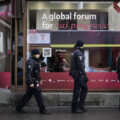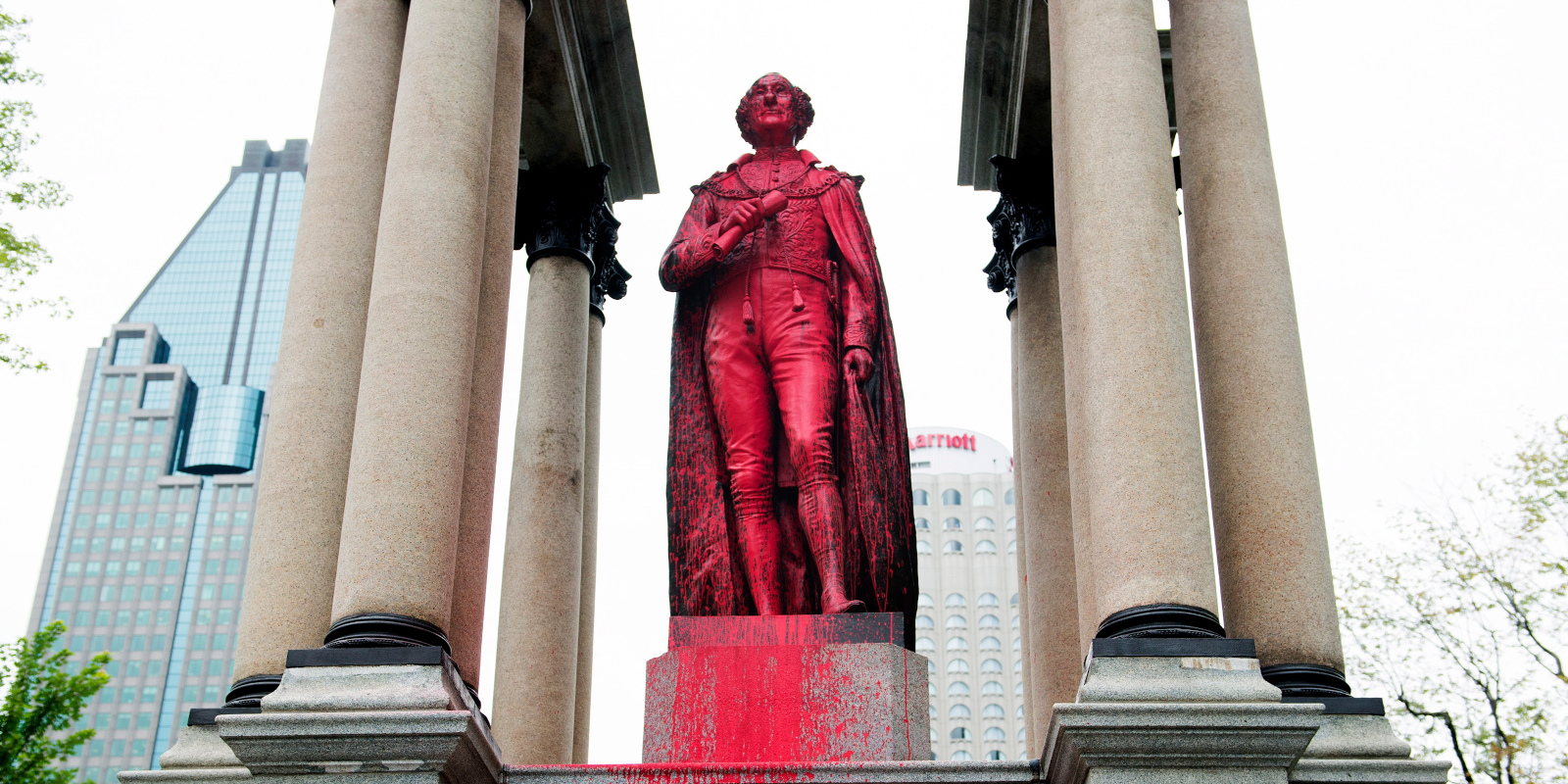In the past decade, as Canadian educational institutions have attempted to grapple with this country’s complex past, the teaching of Canadian history has undergone a shift toward “decolonization.” Now, historians are discussing the pros and cons of this approach.
On Thursday evening, the Canadian Institute for Historical Education wrapped up a three-part speaking series titled “Sir John A. Macdonald in Historical Context.” The speakers touched on why decolonial perspectives can be appealing, what value those perspectives have, and what the proper role of historians is in judging the past.
Once a widely celebrated figure in Canadian history, Macdonald has recently suffered a fall from grace. His connection to residential schools in Canada and his role in restricting Chinese immigration have led many in the academic and intellectual communities to re-evaluate his legacy.
“Should he [Macdonald] be judged by the standards of his time, or by the changing standards of the present?” asked David Wilson, a professor of history at the University of Toronto. “If the former, he emerges as an impressive and admirable nation-builder. If the latter, he becomes an architect of cultural genocide and an agent of anti-Chinese racism. The contradictions remain an integral part of the Canadian story.”
Christopher Dummitt, a professor of Canadian history at Trent University and host of the podcast 1867 & All That, said he is not opposed to fresh perspectives on the past, and that they should always be sought.
“Obviously, history changes. Revisionist history is not bad history,” he said. “If you have new evidence, wouldn’t you want to incorporate that evidence…and offer a fresh perspective?”
On one level, Wilson agreed. He believes the historian’s task is to understand the past on its own terms, according to the best evidence, good reasoning, and imaginative insights—and with a sense of humility. Within this approach, applying new perspectives and new evidence as they emerge can play a positive role.
“Such attempts [are] well worthwhile, and at their best, have produced work of great value,” he said. “They’ve opened up new perspectives, they’ve forced many historians to question earlier assumptions.”
As an example, he cited the late senator Hugh Segal, who once lauded Macdonald’s role in Confederation but later tempered his view to acknowledge the decisions Macdonald made that were harmful to Indigenous people.
Wilson did, however, offer a warning about the perils of a decolonial approach to history.
“Decolonization goes wrong when it becomes an ideological weapon. When in the service of a social justice agenda, characterized by absolute moral certainty, it falls prey to distortions, to presentism, and attempts to impose its worldview on academic pursuits in general,” he said.
As Macdonald and other historical figures have come under greater scrutiny, many universities and even governments have chosen to focus on their discriminatory policies and have renamed buildings honouring them or removed their statutes from public spaces. This is presentism in action—the interpretation of past events through modern-day standards.
In the face of these developments, Wilson said the role of a historian is not to serve an agenda, even if it is appealing.
“Our task is to make the past more intelligible, not to dole out praise or blame,” he said. “It is not, or should not be, the historian’s role to act as John A. Macdonald’s defense attorney, just as it should not be the historian’s role to act as a prosecuting counsel.”
Dummitt believes curiosity is the skilled response for historians, and that stepping past initial reactions and denunciation requires time, caution, and reflection.
“It’s easy to pick out the racism,” he said, adding that not stopping there is the key. “What else do you see? What are you surprised by? How else can you explain what you see there?”
Of concern to Dummitt is what he calls a betrayal of the “JFK principle,” which refers to the former U.S. president’s famous quotation: “Ask not what your country can do for you, ask what you can do for your country.”

Dummitt said the principle remains a noble sentiment, and he places it in the context of what he calls the “Historian’s Ethos”: “Ask not what does the past owes you, but what do you owe the past.”
J.D.M Stewart, a former teacher at Bishop Strachan School in Toronto, might argue that the least we owe the past is engagement with it. He spoke about the importance of teaching history.
“I was giving an address to the Model United Nations, and I mentioned Lester B. Pearson. I said, ‘Okay, kids, who can tell me who Lester B. Pearson is?’ And none of the kids knew,” said Stewart.
Stewart critiqued the poor teaching of history in some Canadian provinces and lamented that students may be unaware of what are thought to be some of Canada’s most important and well-known prime ministers of the last two centuries. He singled out Ontario as a province in which history is often not prioritized, and where the brief lessons may often be poorly crafted and focused on condemnation of figures such as Macdonald.
He mentioned historian Jack Granatstein’s 1998 book Who Killed Canadian History?, which critiqued the decline of teaching Canadian history in the education system and called out the negative effects of this trend on society as a whole.
“Jack said in the book, ‘Someone who is walking around without an understanding of the nation’s history, or a nation that doesn’t understand its past, is like an amnesiac walking around the streets.’”
Recommended for You

‘A celebration of the spirit of Alberta’: Ryan Hastman on the political, economic, and cultural importance of the Calgary Stampede

‘Can we actually be an independent country?’: Michael Ignatieff on the 60th anniversary of Lament for a Nation

Fred DeLorey: Why the NDP may be in even bigger trouble than we think

DeepDive: Canada desperately needs its own Department of Government Efficiency—but one with a heart




